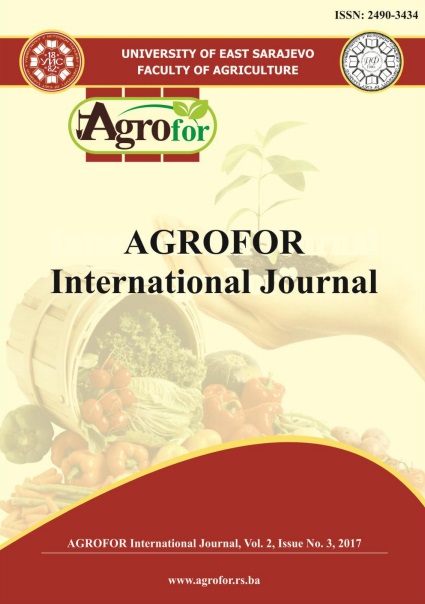STUDY OF THE AGROECOLOGICAL TRANSITION IN EXTENSIVE AGRICULTURE IN THE SEMIARID REGION OF CÓRDOBA, ARGENTINA
DOI:
https://doi.org/10.7251/AGRENG1703053AAbstract
Extensive agriculture in the semi-arid region of Córdoba, Argentina, generated an
intense degradation of the biophysical environment, a decrease in ecosystem selfregulation
mechanisms, a considerable reduction of agrodiversity and the loss of
associated environmental services. The physical-biological responses of different
agroecological practices were evaluated for ten years in permanent macroplots
located in three agricultural systems in order to study the transition towards more
sustainable systems, which can be extrapolated to the rural area of central Córdoba.
This process generated local information compatible with the farmers’ technology.
The results showed that winter cover crops allowed good weed control. Although
they affected the soil water content, they did not produce significant differences in
summer crop yields and they increased the level of surface organic carbon, thus
mitigating the edaphic densification processes caused by no till farming in the
medium term. Crop rotation contributed with more organic carbon to the system.
Open-pollinated maize varieties produced a good yield of grains and biomass, even
in years of marked water deficits, showing their adaptation to semi-arid conditions
and their good plasticity. Fertilization with vermicompost in reduced doses
increased grain yields and biomass production. The integrated management of
these practices improved the balance and biological interdependencies that
favoured biotic regulation between phytophagous and predatory arthropod
populations as well as the regulation of spring weed populations.

